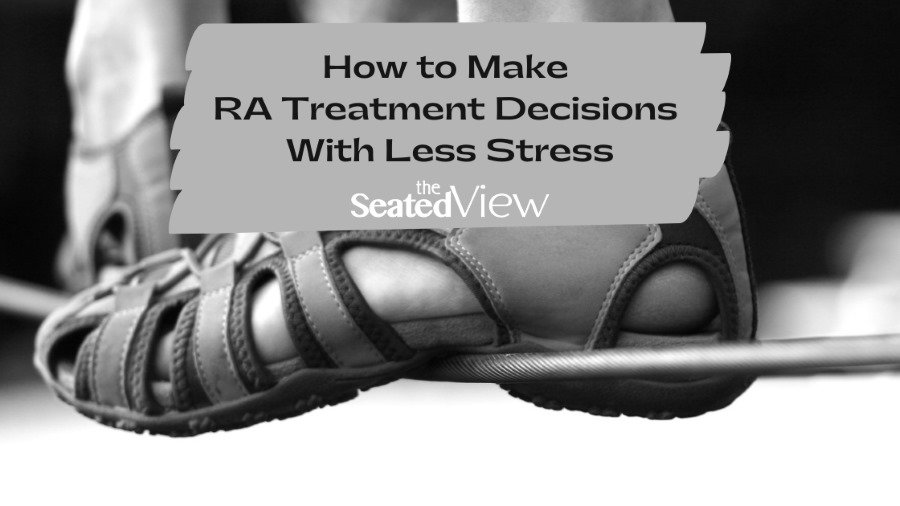How to Make RA Treatment Decisions With Less Stress

Side-effect risks can be downright terrifying when you’re trying new rheumatoid arthritis therapies. Deeeep breath! In this HealthCentral column, I share how I keep my balance:
“The ads make it look easy—you can create a wonderful life of walking on the beach with your beloved and a golden retriever by simply treating your rheumatoid arthritis (RA) with this pill or that injection. And then they ruin it by rattling off dozens of truly horrifying potential side effects, skipping entirely how you’re supposed to cope with this information. But the reality is that making the decision to treat your RA—whether at all or with a particular medication—is a complicated emotional tightrope walk between what-if angst and the promise of hope. How do you choose treatment and how scared should you be? Let’s talk about it.
When I started my first biologic 15 years ago, the available science said it came with a higher risk of lymphoma, a type of cancer. As the certainty of a ruined life from out-of-control RA inflammation was by far the scarier option than choosing to hope, I held my breath and jumped off the metaphorical cliff into the waiting arms of yet another medication. This time, it worked. A decade and a half later, I have created a wonderful life that occasionally includes walks along the urban lakefront with my beloved, while our two cats snooze away the day at home. About the cancer risk? Now, we know that this particular type of biologic does not increase the risk of lymphoma any more than untreated RA does.
I grew up in a time when RA was an even deeper mystery than it is today. Treatment consisted of steroids, gold injections, and occasionally throwing crazy ideas at patients to see if it worked. When I was 17 years old, I spent several months taking part in a study testing a combination of antihistamine and ulcer medication, because the researchers were investigating if RA was allergy-related. Aside from finally getting some peace in my always-roiling stomach, this did nothing to improve my health. Eventually, I stopped trying new experimental treatments. The dashed hope when something yet again was no more effective than a breath mint was just too devastating.”
Read my column on getting through a medication change on HealthCentral.
1 Comment
Read More
Discover what else I've been writing about...
















Lene:
When I was put on Rituxan I had been using biologics for 14 years. It was my last available medication. we had read the warnings and long before decided we would not use Rituxan, so when it was offered, I said no.
the docotr was very nice and suggested I come back in a month to make sure I was doing OK. I lasted 10 tens. When I crawled back in to his office he started me on Rituxan and that was eight years ago. It has been the best biologic of the 5 I have used. I am so grateful for it. One cannot just read the label , my advice, read the label, but talk to your doctor as well.